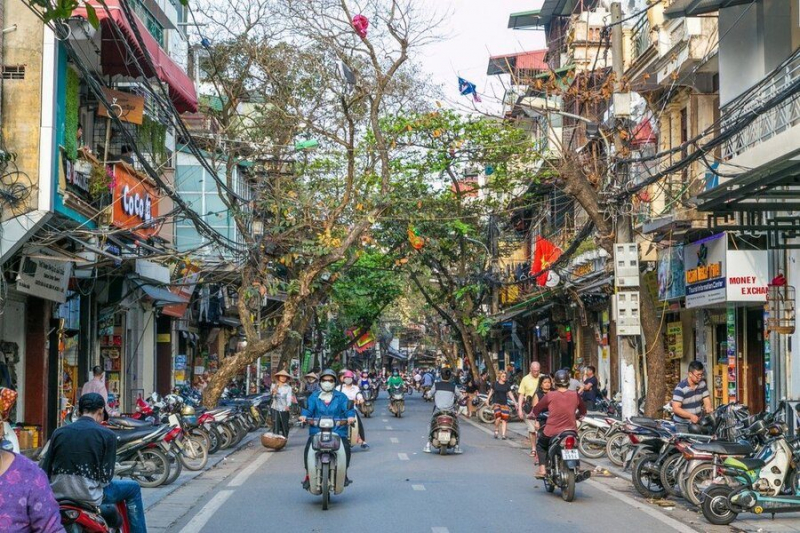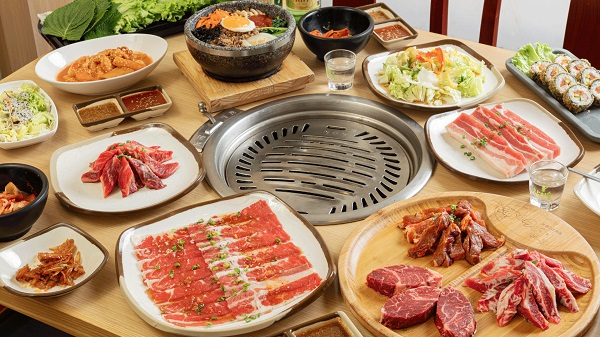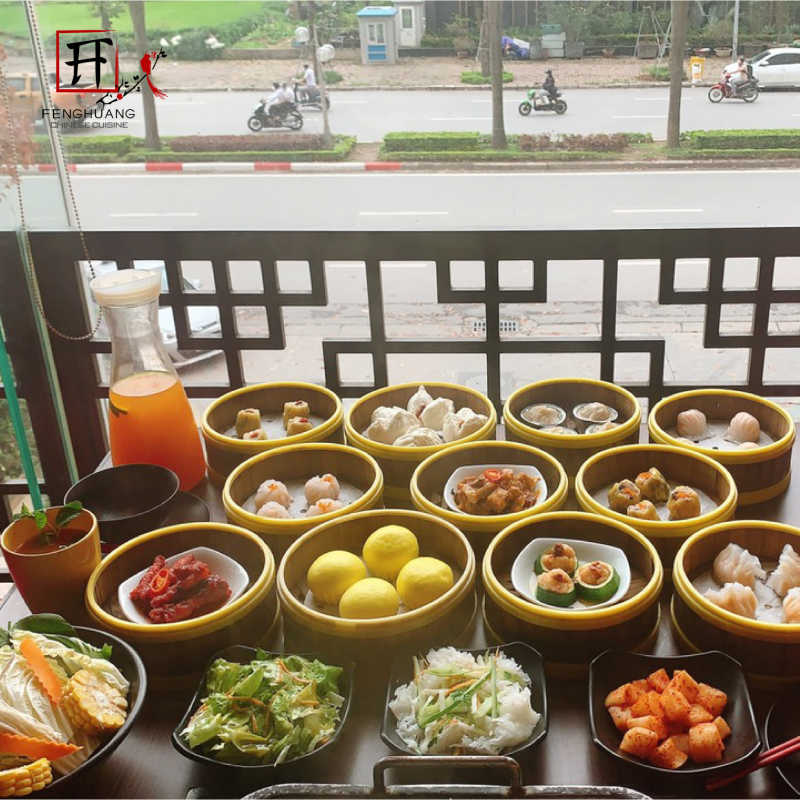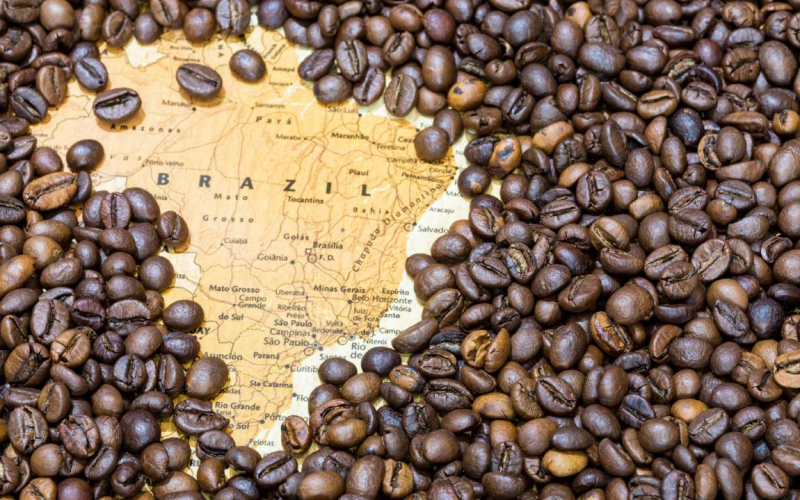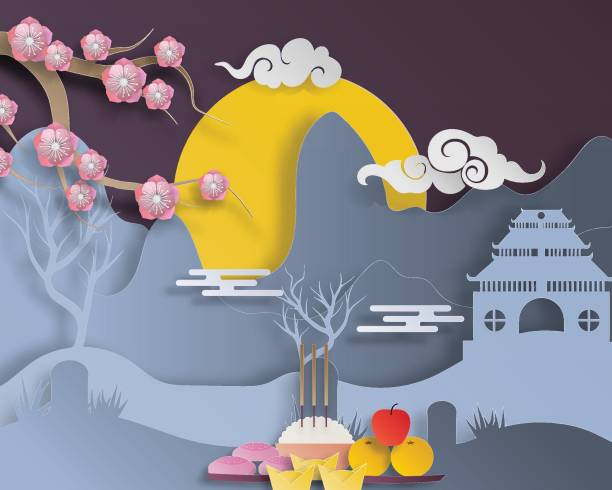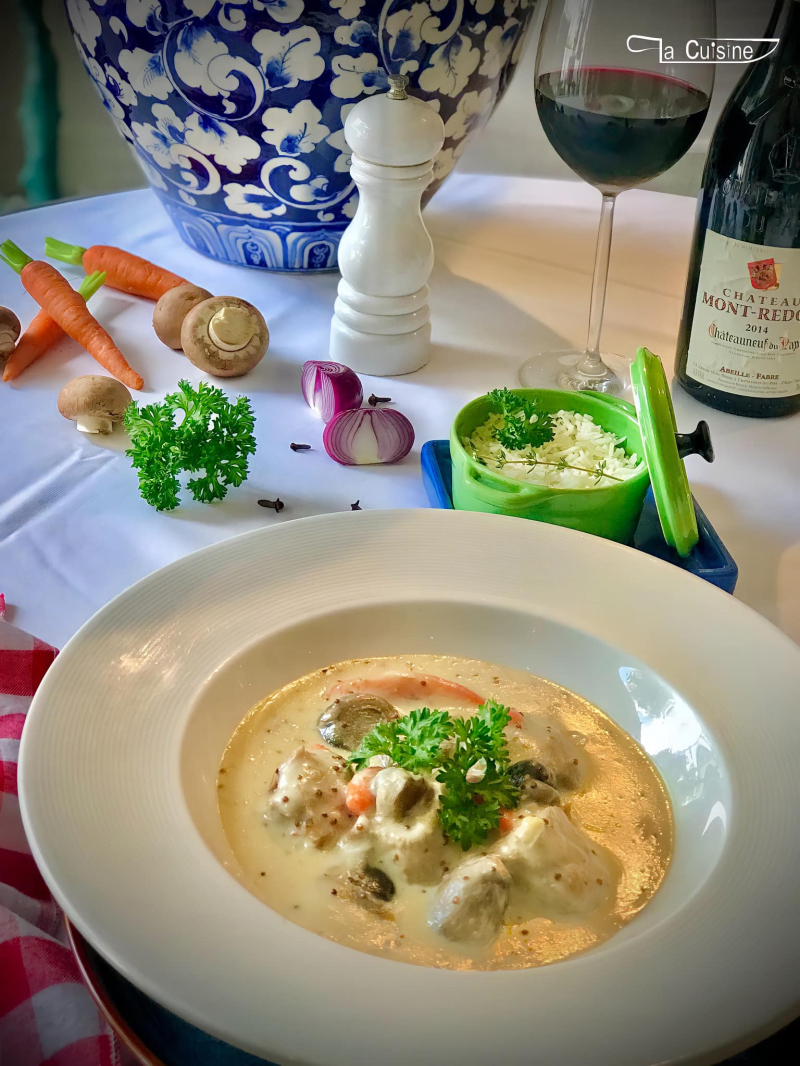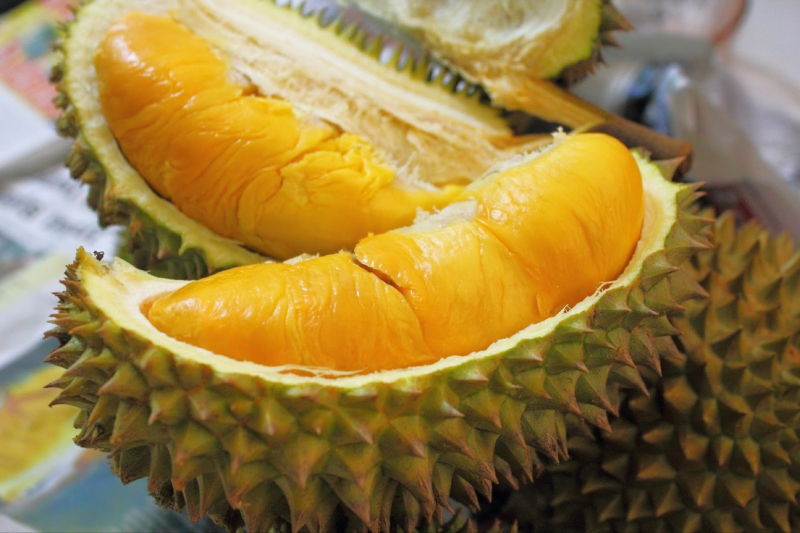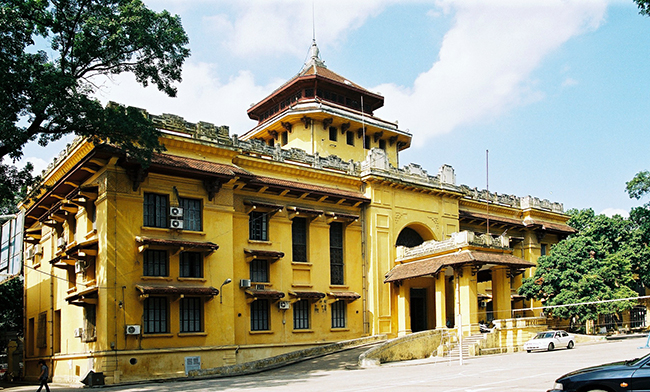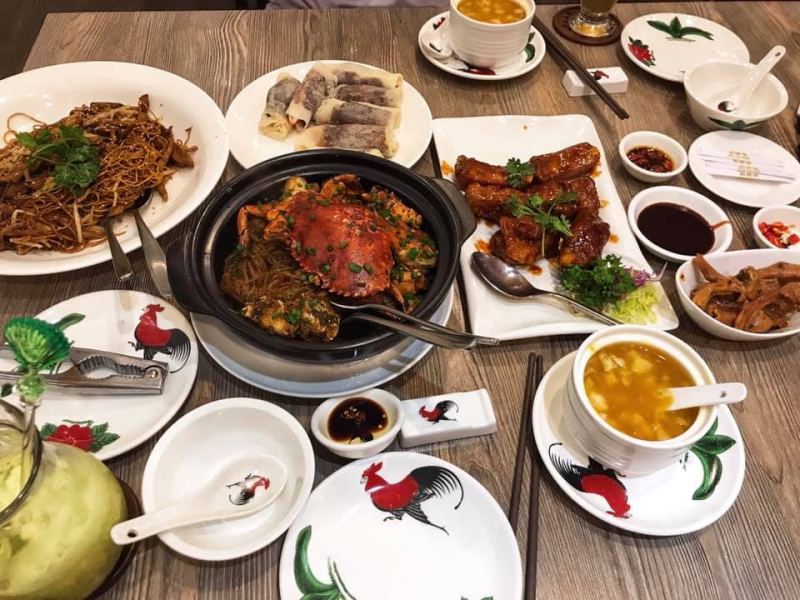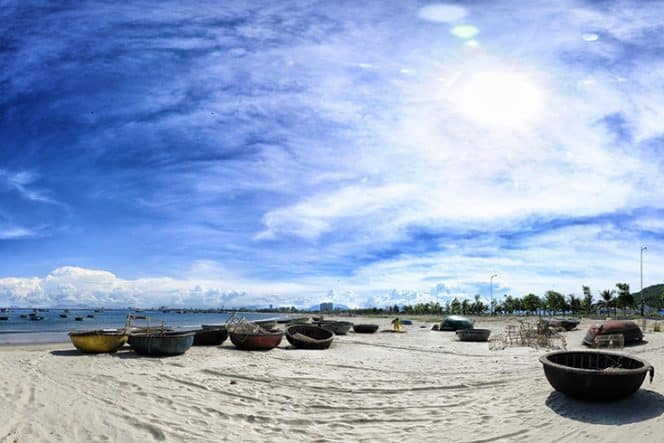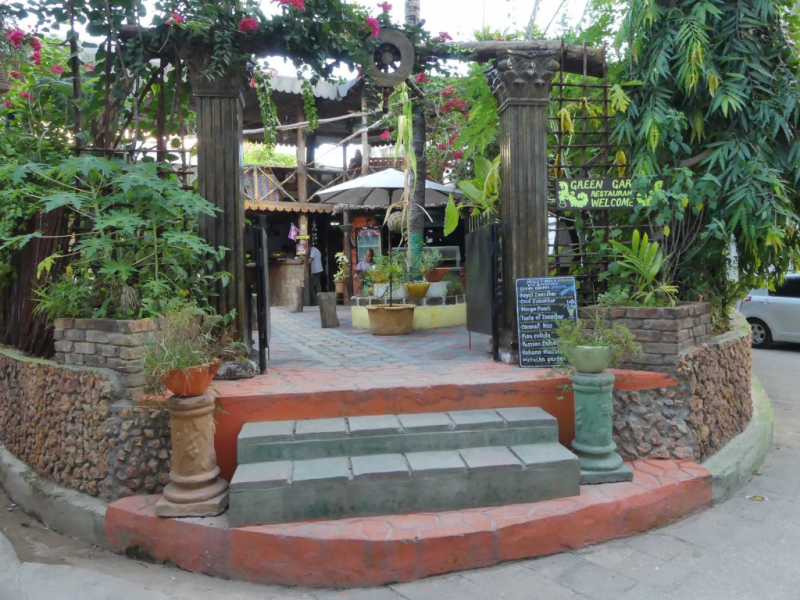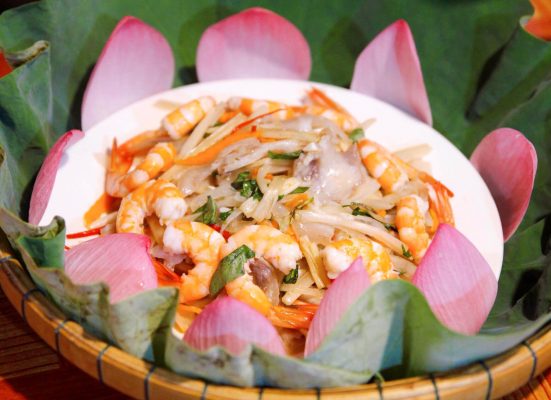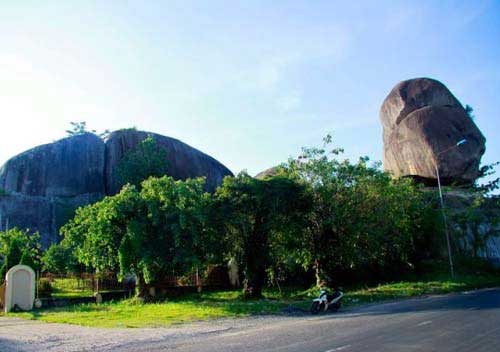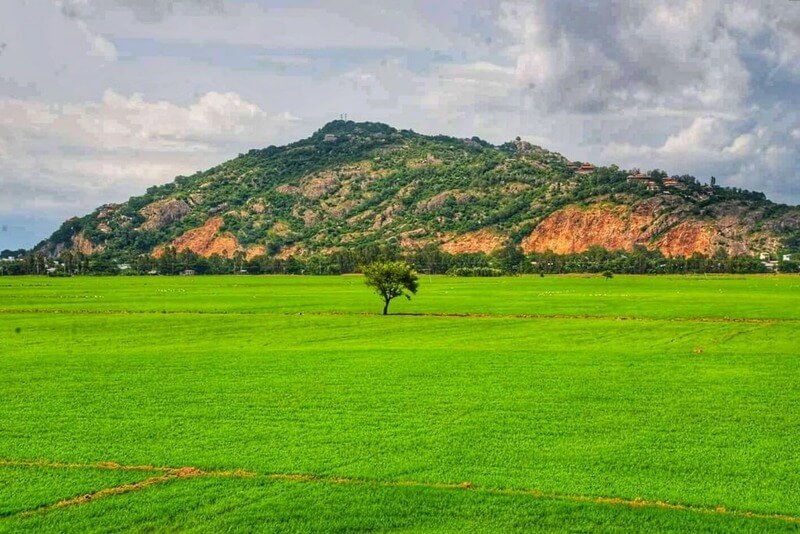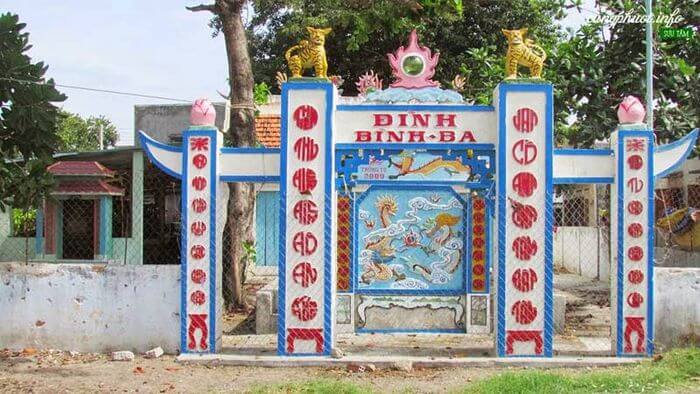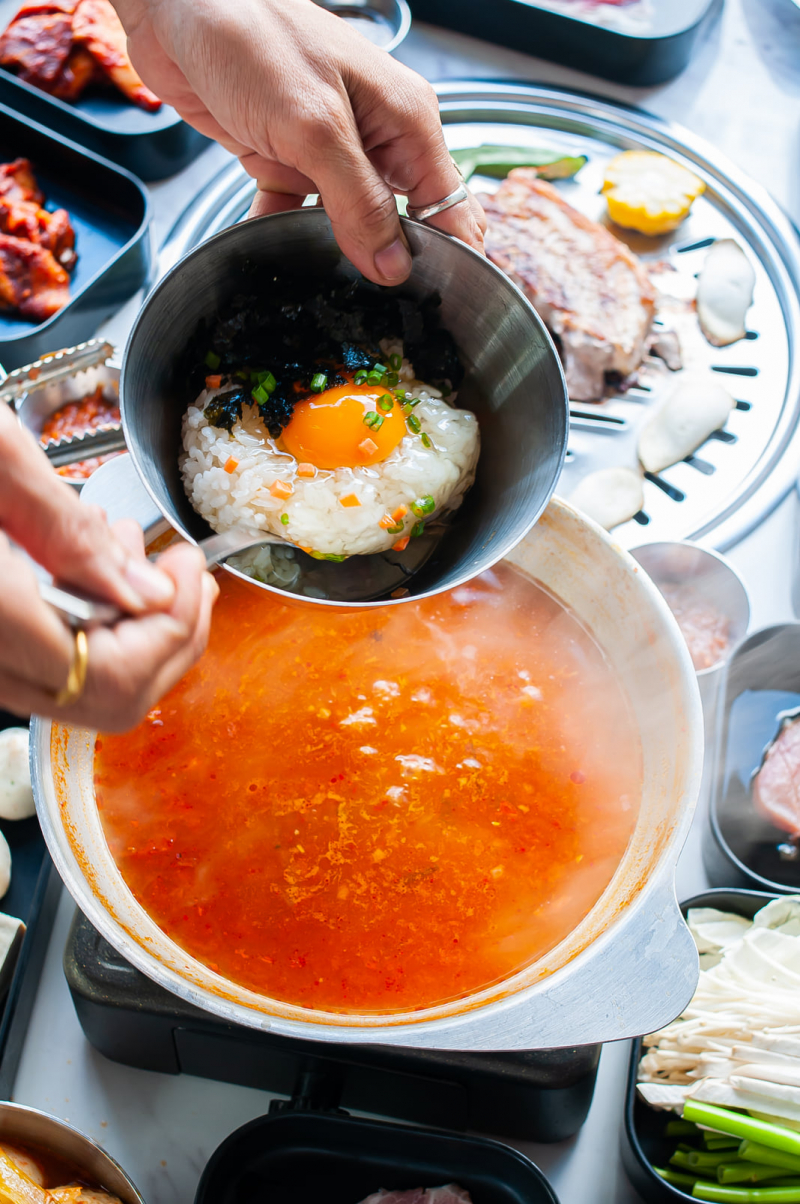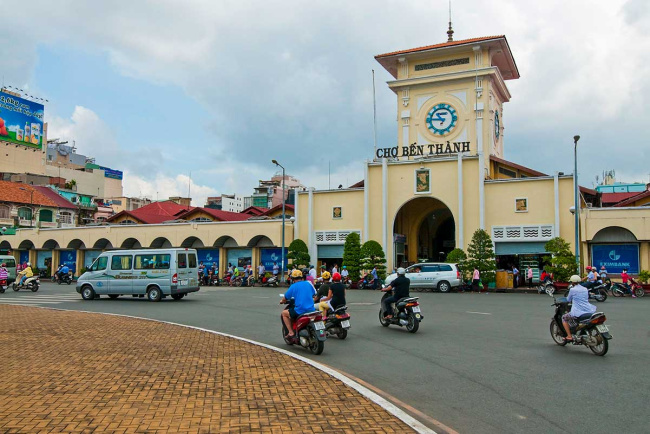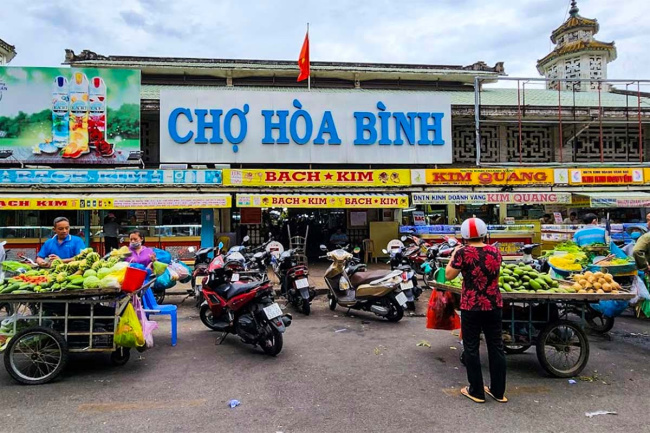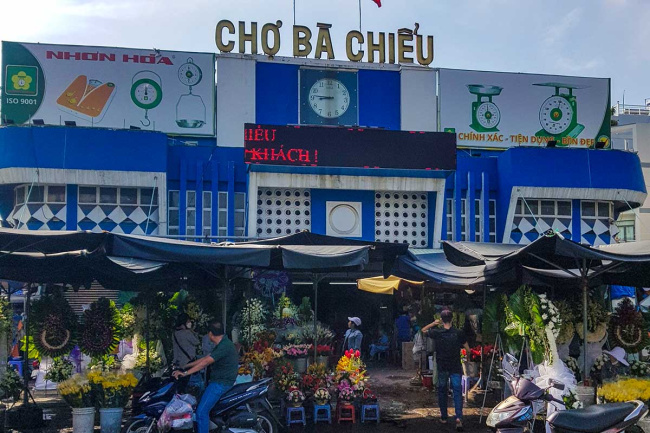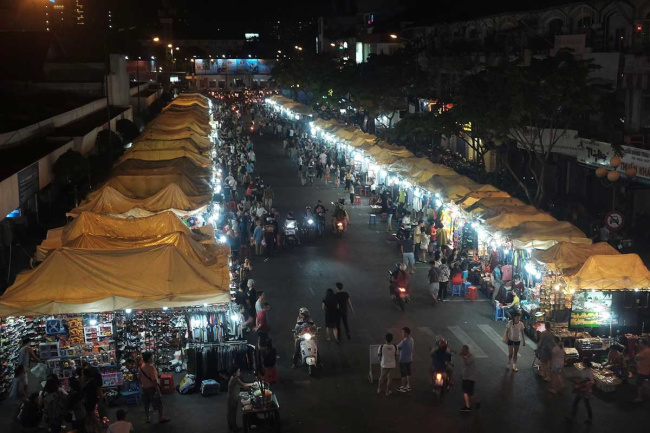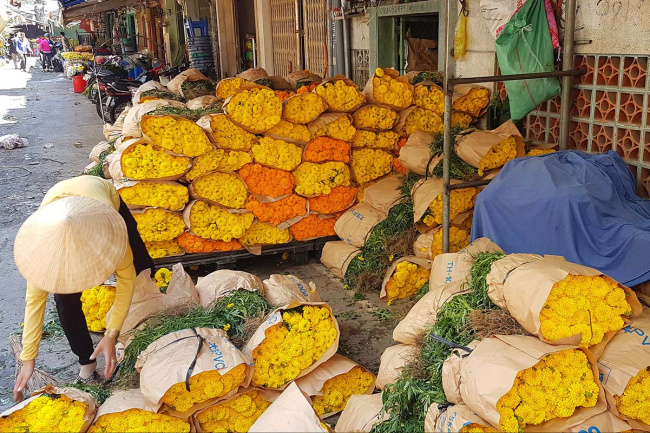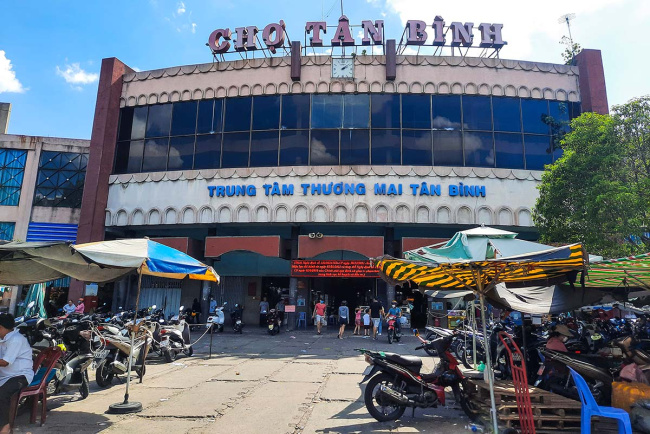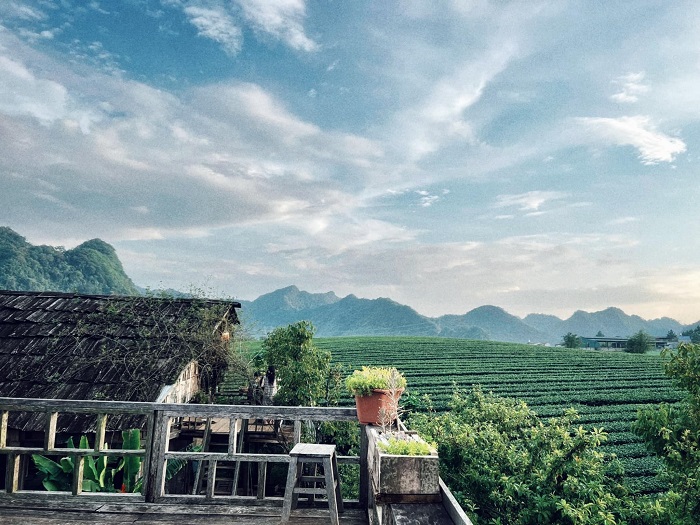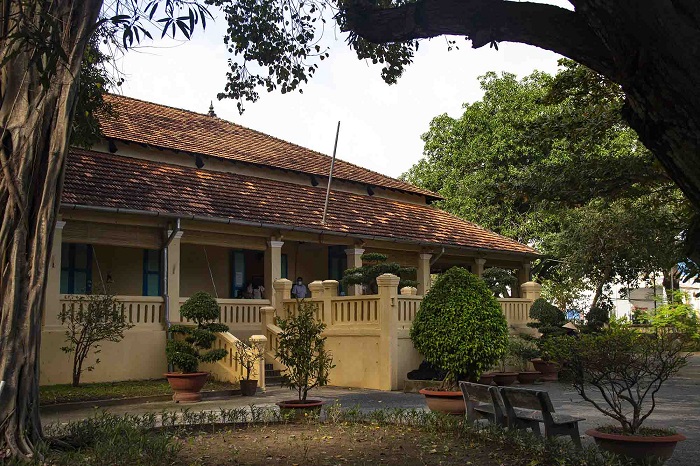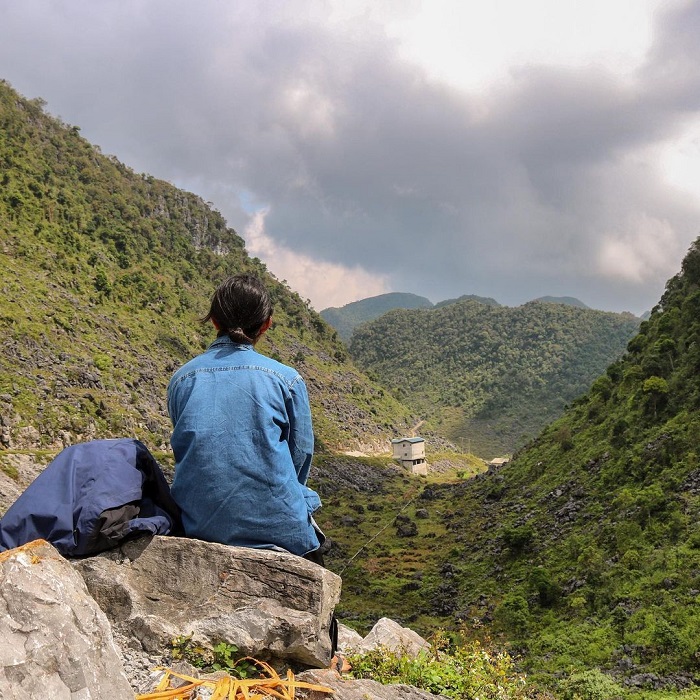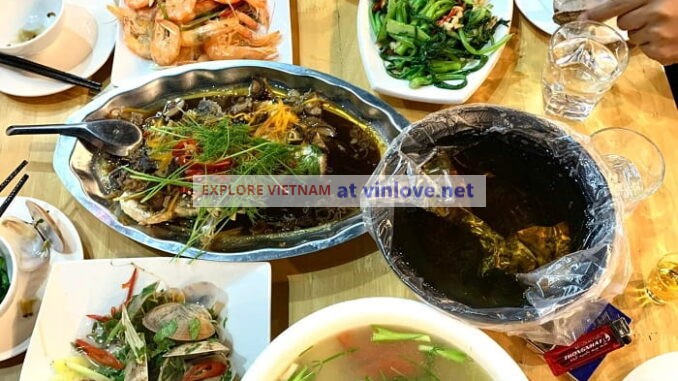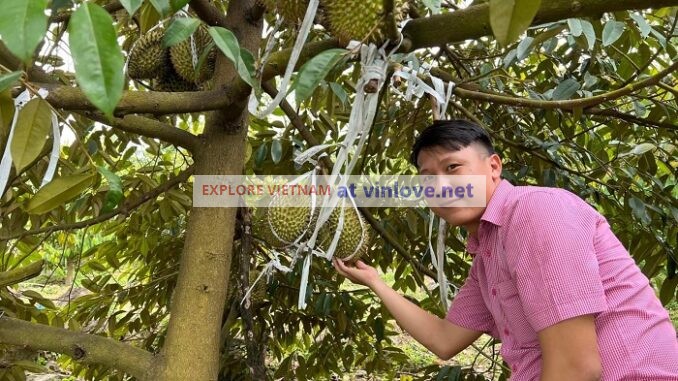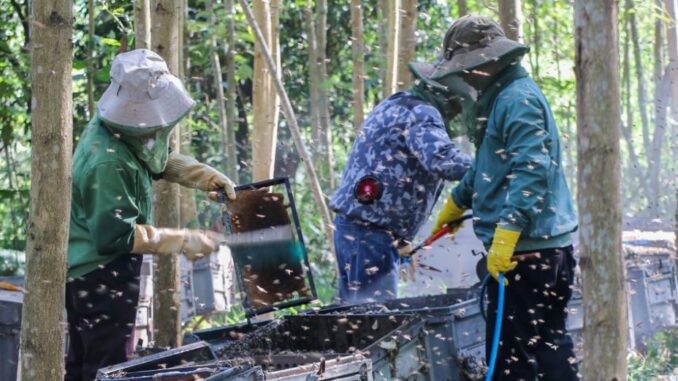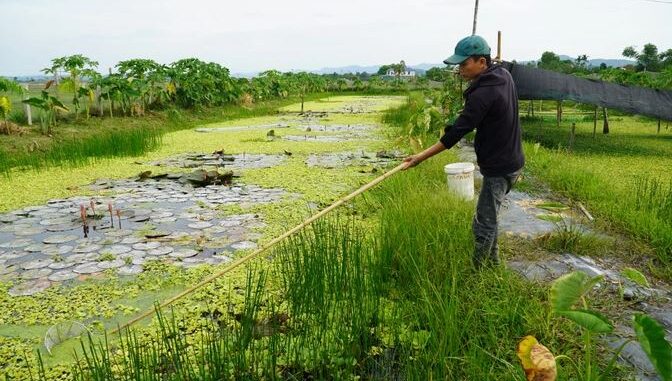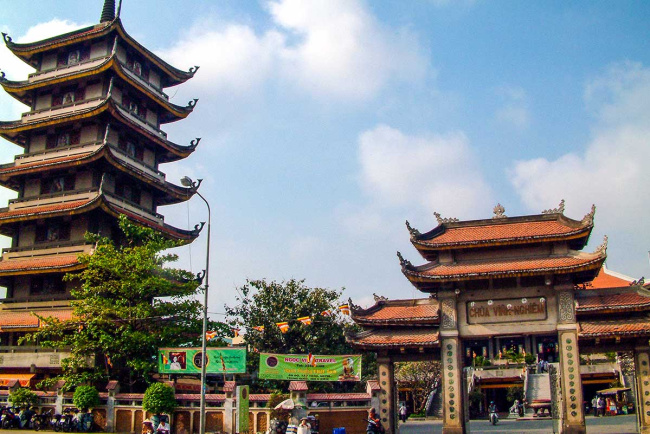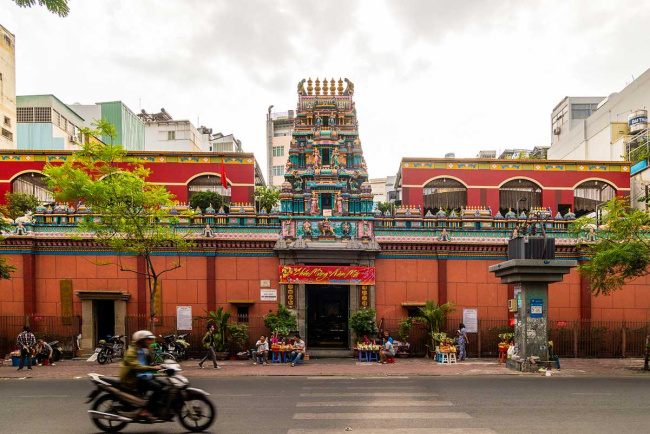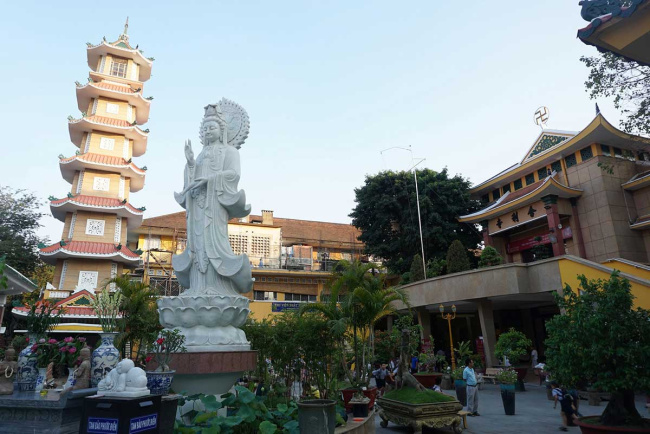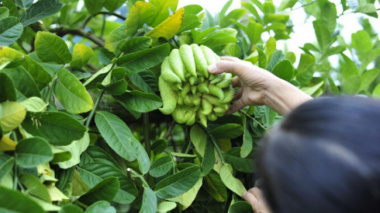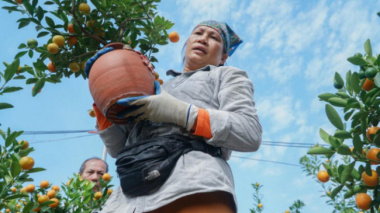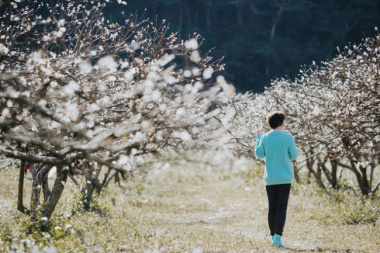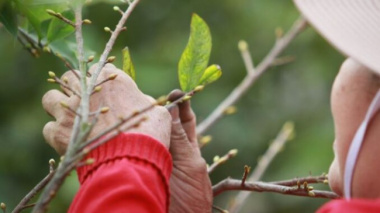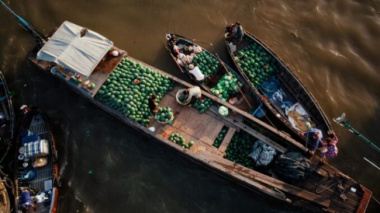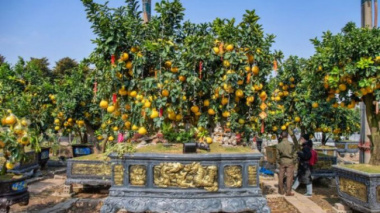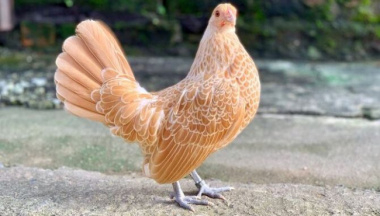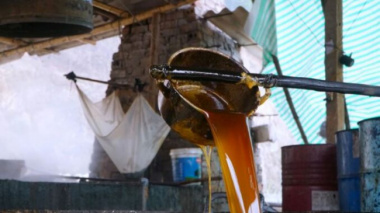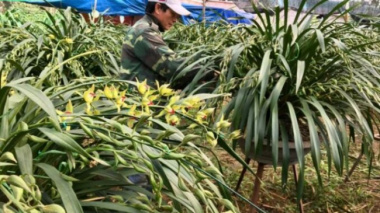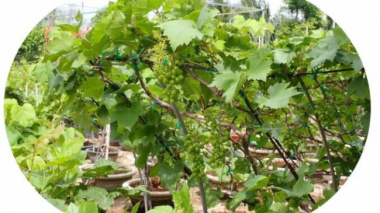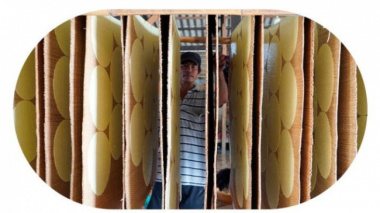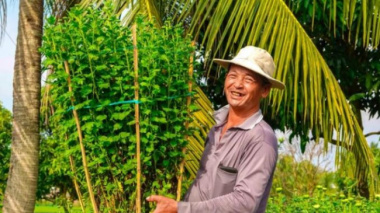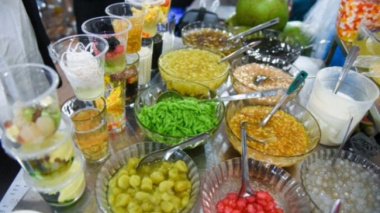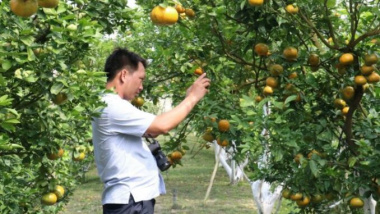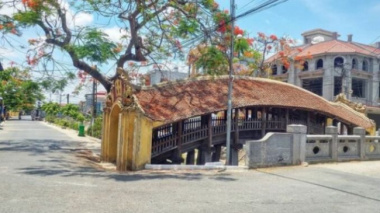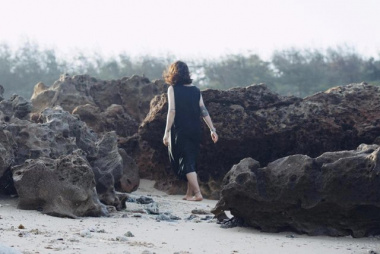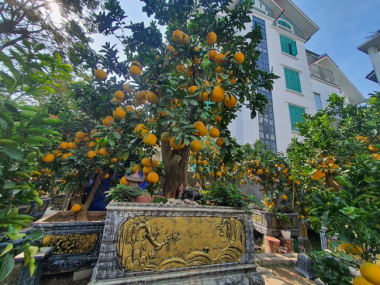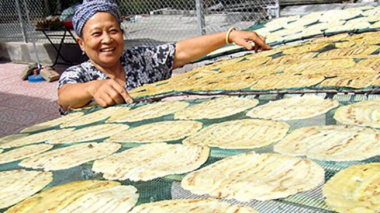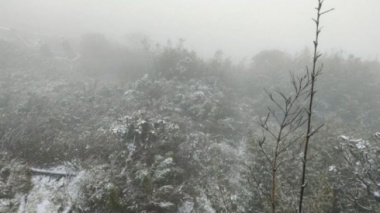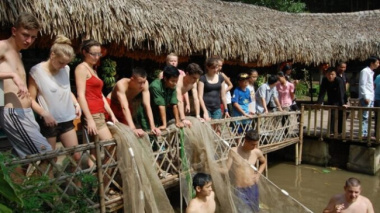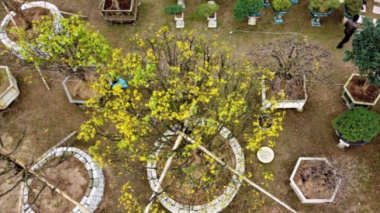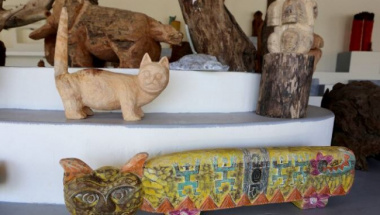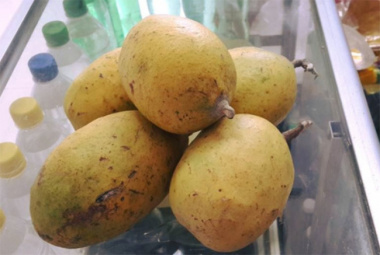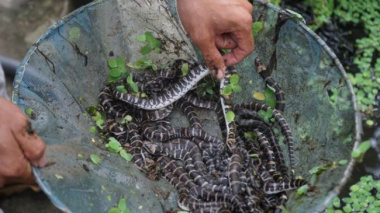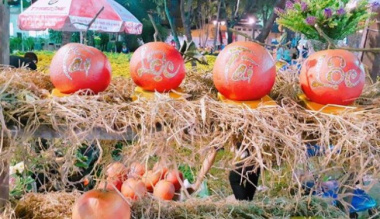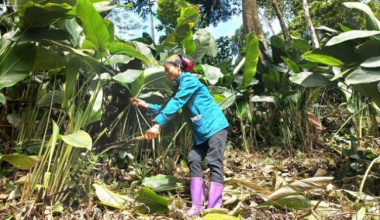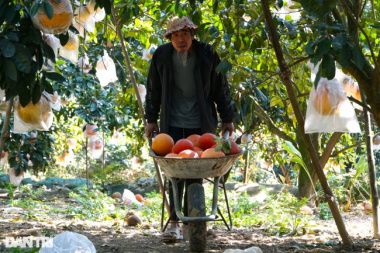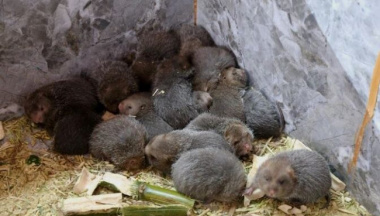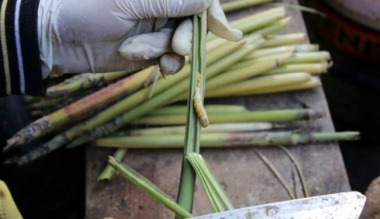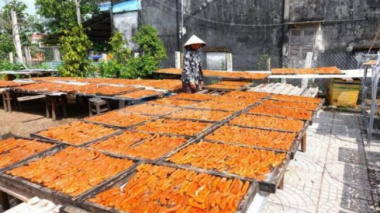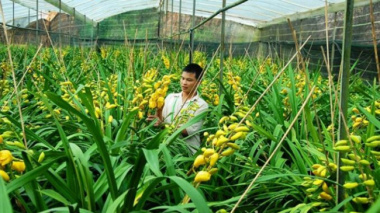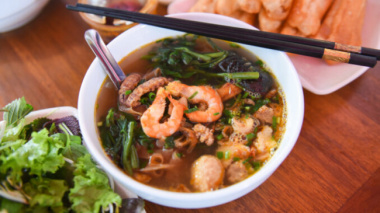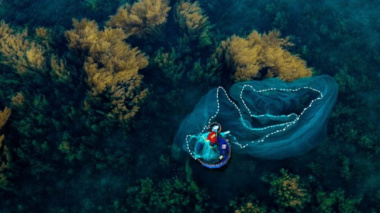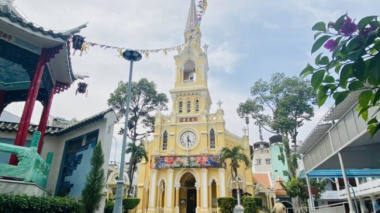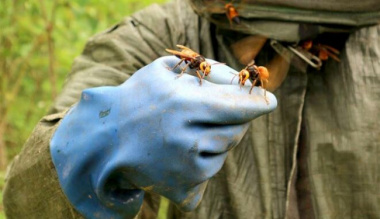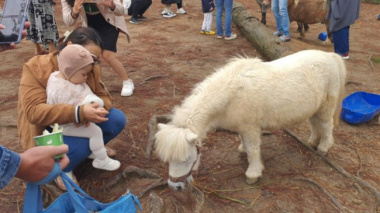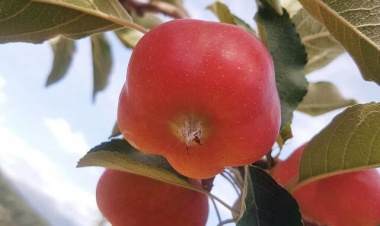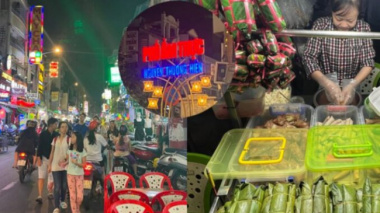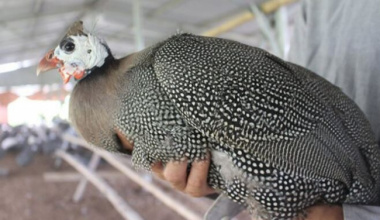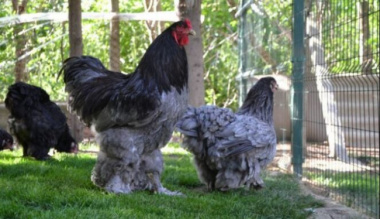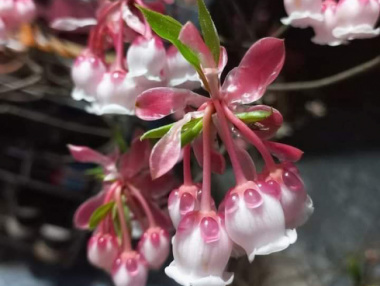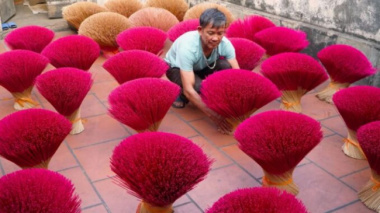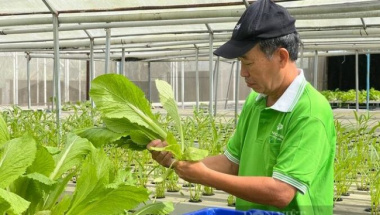Cheese is full of maggots, very strong smell but still many people love it
Sardinia is located in the middle of the Tyrrhenian Sea, an extremely famous Italian island. Sardinia is known for its 1,849 km coastline with white sand beaches and emerald waters and because it is associated with Casu Marzu, the distinctive cheese of the “boot-shaped country”.
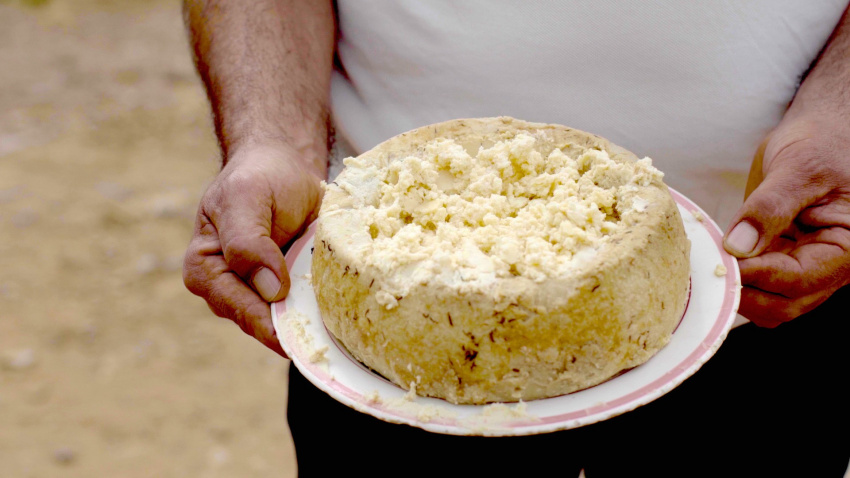
Casu Marzu is recognized as the most “dangerous” cheese in the world.
Italy has many types of cheese, but the most unique is Casu Marzu, a cheese with a strong smell and maggots. This cheese is really not easy to eat, it is even dangerous. That’s why in 2009, the Guinness Book of Records declared it the most dangerous cheese in the world.
Cause why? By “any larva that survives the effects of gastric juice can cause vomiting, abdominal pain and bloody diarrhea”. However, the current facts are different: to date there is no evidence of any pathology or digestive disorders directly related to the consumption of maggot cheese.
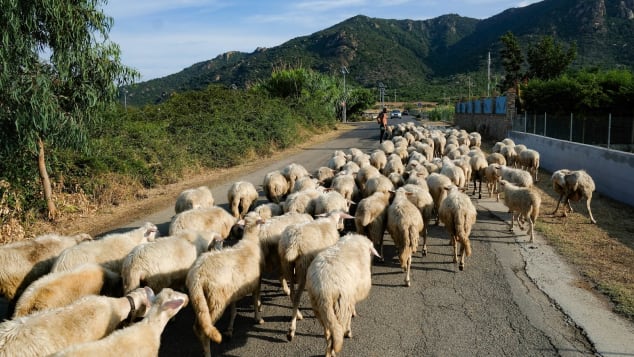
Casu marzu is made from sheep’s milk cheese.
The cheese used to make Casu Marzu is usually Fiore Sardo, the island’s savory Pecorino cheese. Piophila Casei will first lay eggs in the cracks in the cheese. After a while, the larvae will hatch into maggots that burrow through the paste, digesting the protein in the cheese, turning the cheese into a soft cream that tastes sweet and spicy. This “ripening” process lasts from 1 to 3 months and the production period is from March to September. Casu Marzu cheese is only edible while the larvae are still alive. If the maggots are dead, that piece of Casu Marzu cannot be eaten because the cheese’s environment is considered so toxic that the maggots cannot survive and is very dangerous for humans to eat.
When enjoying, the cheesemaker will slowly open the cracked part and be almost untouched by the maggots to scoop up this soft, fatty mixture. This is not a moment for the faint of heart, as the maggots inside begin to squirm wildly. Some locals spin the cheese through a centrifuge to mix the maggots with the cheese. Others prefer to enjoy it naturally. Slowly open the cheese lid and enjoy the maggot cheese inside.
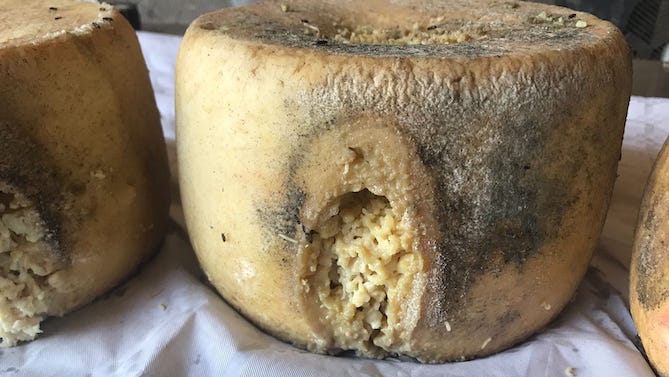
Casu marzu: The most “dangerous” cheese in the world.
If you can get past the unpleasant, even haunting images and scents that are common at first, then a new culinary experience will open up before your eyes. Accordingly, Casu Marzu has an intense flavor reminiscent of Mediterranean grasslands and a spicy aftertaste that will linger for hours.
Some say that Marzu is good for health and sex life. But it is also suggested that the type can be dangerous to human health because maggots can remain in the body after and can cause intestinal damage, diaphragm pain, vomiting and diarrhea. After all, if you still decide to try eating, you should wear glasses because the maggots in Casu Marzu can jump up to 15cm… to catch your eye.
Casu Marzu is part of Sardinian food culture
When tourists visit Sardinia, they often stop by a restaurant that serves Porceddu Sardo – a slow-roasted suckling pig, visit bakers selling Pane Carasau – a traditional paper-thin flatbread and meet Shepherds produce Fiore Sardo – Pecorino cheese on the island. However, if you are adventurous enough, you can find Casu Marzu.
Giovanni Fancello, a 77-year-old journalist and Sardinian, has devoted her life to researching local culinary history. “We always eat this cheese containing maggots,” says Fancello. Ten other regions of Italy also have variations of maggot-infested cheese, but while the products elsewhere are considered one-of-a-kind, Casu Marzu is intrinsically part of Sardinian culinary culture. “
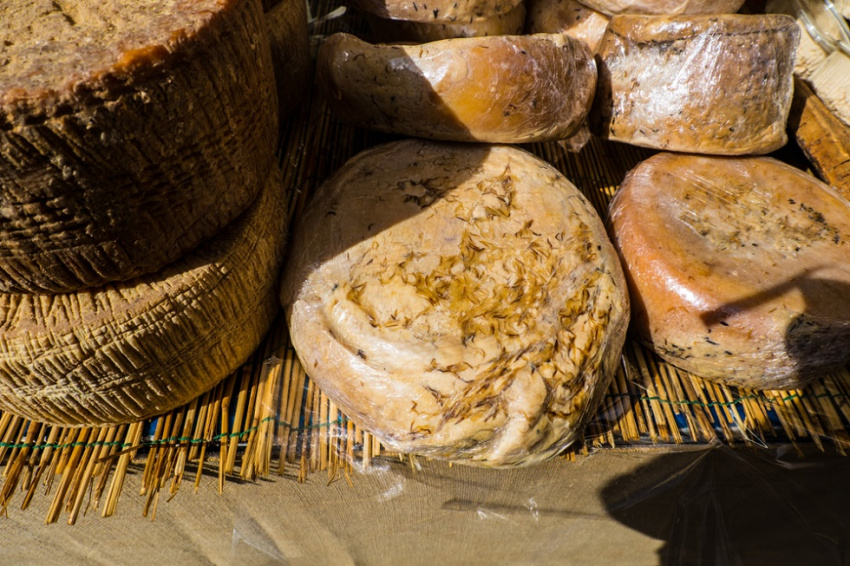
Casu Marzu is part of Sardinian food culture.
Marzu cheese has several different names, such as Casu Becciu, Casu Fattittu, Hasu Muhidu, Formaggio Marcio. Each sub-region of the island has its own way of producing using different types of milk.
If asked: “How do you make Casu Marzu?” According to the people here, it is the result of chance, magic and supernatural events. Casu Marzu is a divine gift. If the cheese hadn’t been contaminated with maggots, the shepherds would have been sorely disappointed. They are often produced for the family to enjoy and others are shipped to friends or those who request it.
Casu Marzu is usually produced at the end of June when the local sheep’s milk begins to change during the animal’s reproductive phase. When making marzu cheese with a hot wind blowing, it will help the cheese soften, the weaker structure makes the fly’s job easier. After three months, this cheese will be ready to enjoy.
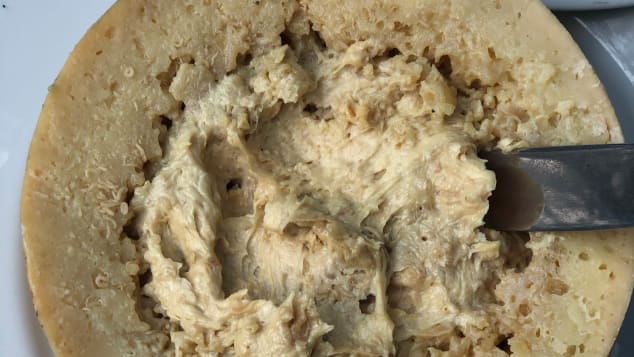
Mario Murrocu, 66, keeps the tradition of making Casu Marzu on his farm. He raised 300 sheep and received guests in his restaurant, and kept the Casu Marzu tradition alive. “You can tell if the Casu Marzu will form when the Pecorino cheese starts to change into a spongy texture and goes to a mushy instead of hard as it was.
Today, making Casu Marzu does not depend much on luck as cheesemakers place Pecorino cheese in an environment with ideal conditions to ensure as much Casu Marzu as possible. They also figured out how to use glass jars to preserve cheese.”
Consuming Casu Marzu is now illegal
Casu Marzu is registered as a traditional product of Sardinia and is therefore protected locally. However, it has been illegal by the Italian government since 1962 due to a law banning the consumption of food contaminated with the parasite. This cheese is also banned in Europe. Cheese sellers can face high fines of up to €50,000 (about $60,000).
In the last few years, the European Union has begun to research and revive the concept of eating insects thanks to a new food concept, where insects are raised for consumption. Research shows that consuming them can help reduce livestock-related carbon dioxide emissions and help alleviate the climate crisis.
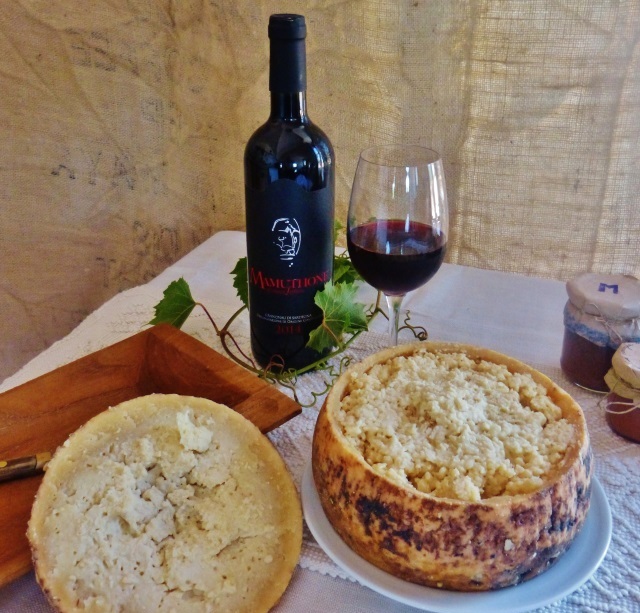
Casu Marzu can only be found in Sardinia.
Until then, anyone who wants to enjoy Casu Marzu can only set foot in Sardinia and ask the locals. For those willing to take a break from worrying about what they’re eating, it offers an authentic experience that recalls a time when nothing was thrown away and when the boundaries of what was edible were or were not defined. more clearly.
Đăng bởi: Nguyễn Thị Yên


